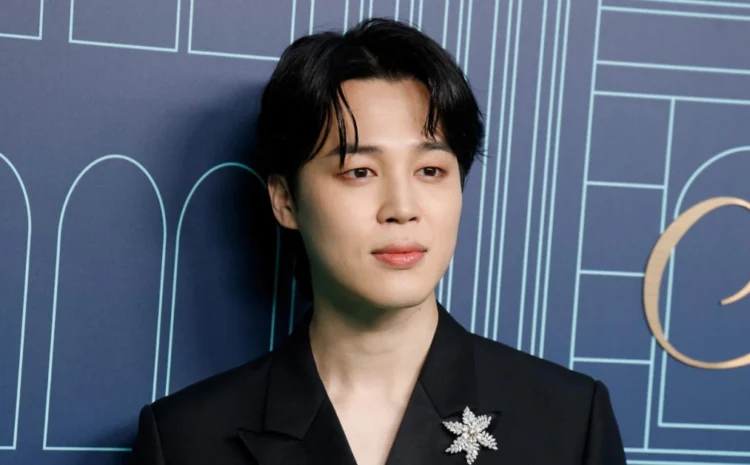Jimin’s Artistic Evolution Stands Out in “Muse”

As BTS members embarked on their solo projects, Jimin’s artistic direction was the hardest to predict. He has shown versatility, expressing anguish in “Lie,” soft romanticism in “Serendipity,” and sincerity and vulnerability in “Promise.” In “Set Me Free, Pt. 2,” he unveiled an aggression previously unseen in his music, while the dreamy soundscape of “Like Crazy” masked a deep sense of loneliness. As the captivating “Filter” asks, “Which version of me do you want?”
With his second album Muse, Jimin continues to evolve as an artist, expanding our understanding of his craft. Unlike his debut EP Face, which explored his personal struggles with a raw, cathartic edge, Muse emerges from a more settled and less introspective place. On this album, Jimin showcases both new and familiar aspects of himself. For instance, the fan-favorite track “Closer Than This” highlights his sweet and earnest side, while the title track “Who” demonstrates his pop star potential with catchy melodies, nostalgic early 2000s pop/R&B instrumentation, and polished choreography.
In a conversation with RM, Jimin emphasized that Muse is not a direct continuation of Face, though it’s hard not to view it as a brighter counterpoint. The album’s beginning notably mirrors its predecessor, with interludes similar to the second track of Face. “Interlude: Showtime” echoes the carnival-like opening of Face’s first song, “Face-Off,” but this time, Jimin embraces the joy of the carnival rather than reflecting on the “circus” where he once felt like a fool.
The interlude flows seamlessly into the whimsical pre-release single “Smeraldo Garden Marching Band,” featuring rapper Loco. The title references a flower from BTS lore, notably mentioned in “The Truth Untold” from Love Yourself: Tear. Unlike the introspective speaker of that track, who conceals his emotions out of inadequacy, Jimin’s band leader in this song advocates for greater honesty, declaring, “Let’s be a little more honest.” With its bright and bouncy feel, “Smeraldo Garden Marching Band” shines in its most jubilant moments, including Jimin’s soaring high notes in the bridge and the triumphant brass outro.
Both the song and its MV pay homage to The Beatles’ Sgt. Pepper’s Lonely Hearts Club Band. This reference highlights Jimin’s playful exploration of artistic personas, though the band motif doesn’t carry throughout the album. Instead, the thematic thread of the album centers on Jimin’s capacity for love. This theme is vividly portrayed in “Rebirth (Intro).” The track is lush, grand, and hopeful, beginning with a pulsing heartbeat and twinkling keys that complement Jimin’s delicate vocals. As the song builds with the gospel choir, it delivers an emotional payoff. Following Face’s “Set Me Free Pt. 2,” where the choir underscores a yearning for personal liberation, “Rebirth (Intro)” suggests a man who has completed that journey and is ready to begin anew, embracing the capacity to love others.
“Slow Dance” and “Be Mine” shift the album into a more sultry realm. The R&B track “Slow Dance,” featuring Sofía Carson, benefits from her warm tone and airy head voice, which blend beautifully with Jimin’s, especially during their harmonies and when Jimin adds adlibs to her vocals. Dreamy and atmospheric, especially with the saxophone at the end, the song effectively evokes the feel of an intimate slow dance. Meanwhile, “Be Mine” stands out as the album’s most seductive track, drawing on Latin and Afrobeat influences in its guitar and beats. The rhythmic, insistent hook, with Jimin repeatedly singing, “I want you to be mine” and “Movin’, comin’, lovin’, yeah yeah yeah,” complements his sultry side, making it a perfect match for his fluid dance moves.
In terms of the album’s narrative arc, “Who” captures Jimin’s quest for romance with a sense of uncertainty and realism. The refrain “Who is my heart waiting for?” highlights the challenge of finding a genuine connection, even amidst longing for a partner. The strumming guitar, beat drops, and piano arpeggios enhance this feeling, but it’s Jimin’s emotive vocal performance—delicate, gritty, and powerful—that truly stands out. He conveys yearning effectively without letting the overall mood turn sad or desperate.

